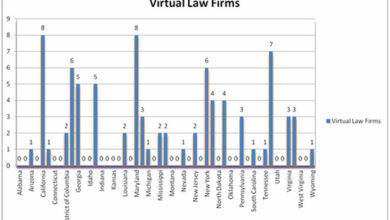Lawyer Referral Services: How Do They Work?
When individuals find themselves in need of legal advice or representation, one common approach is to seek the assistance of a lawyer. However, with numerous lawyers practicing in different areas of law, finding the right attorney can be overwhelming. This is where lawyer referral services come into play. Lawyer referral services act as intermediaries, connecting individuals in need of legal help with qualified and experienced lawyers. In this article, we will explore how lawyer referral services work, their benefits, and potential drawbacks.
1. Introduction to Lawyer Referral Services
Lawyer referral services are organizations that facilitate the process of finding suitable lawyers for individuals seeking legal assistance. These services match clients with attorneys based on their specific legal needs, geographical location, and other relevant factors. By streamlining the search process, lawyer referral services aim to make the legal system more accessible and efficient for those in need.
2. The Process of Lawyer Referral Services
The process of using a lawyer referral service typically involves several steps:
- Initial Contact: The individual seeking legal help contacts the lawyer referral service via phone, online form, or in-person visit.
- Intake Interview: The referral service conducts an intake interview to gather information about the individual’s legal issue, location, and any specific requirements.
- Matching Process: Based on the gathered information, the referral service identifies lawyers from their network who specialize in the relevant area of law and are available to take on new clients.
- Referral: The referral service provides the individual with the contact information of the recommended lawyer(s).
- Follow-Up: Some referral services may follow up with the individual to ensure they have made contact with the referred lawyer and are satisfied with the service.
3. Benefits of Using Lawyer Referral Services
There are several benefits associated with using lawyer referral services:
- Time-Saving: Lawyer referral services save individuals the time and effort of searching for lawyers on their own. Instead of contacting multiple attorneys individually, individuals can rely on the referral service to provide them with suitable options.
- Expertise: Lawyer referral services connect individuals with lawyers who specialize in the specific area of law relevant to their case. This ensures that individuals receive assistance from lawyers with the necessary expertise and experience.
- Credential Verification: Most reputable lawyer referral services perform a thorough vetting process to ensure that the lawyers in their network are qualified and in good standing with the relevant bar associations.
- Cost-Effective: Some lawyer referral services offer initial consultations at reduced rates or even for free, allowing individuals to explore their legal options without significant financial commitment.
4. Drawbacks of Lawyer Referral Services
While lawyer referral services have their advantages, it is important to consider their potential drawbacks:
- Limited Scope: Lawyer referral services may have a limited number of lawyers in their network, potentially restricting the range of options available to individuals.
- Quality Control: Although reputable referral services vet their lawyers, there is still a possibility of encountering lawyers who may not meet the individual’s expectations or needs.
- Fee Structure: Some lawyer referral services charge fees for their services, either directly to the individual or as a percentage of the attorney’s fee. Individuals should be aware of any associated costs before using a referral service.
5. Case Studies: Successful Lawyer Referral Service Stories
Let’s take a look at a few case studies that highlight the effectiveness of lawyer referral services:
Case Study 1: John’s Divorce
John, a recently separated individual, needed legal assistance to navigate his divorce proceedings. He contacted a lawyer referral service and provided details about his situation. The referral service matched him with a family law attorney who had extensive experience in divorce cases. With the help of the referred lawyer, John successfully obtained a fair settlement and resolved his divorce amicably.
Case Study 2: Sarah’s Personal Injury Claim
Sarah was injured in a car accident and wanted to pursue a personal injury claim. She reached out to a lawyer referral service, which connected her with a personal injury lawyer specializing in automobile accidents. The referred lawyer guided Sarah through the complex legal process, negotiated with insurance companies on her behalf, and helped her secure a favorable settlement for her injuries and damages.
6. Statistics on Lawyer Referral Services
Here are some statistics that shed light on the impact and usage of lawyer referral services:
- According to the American Bar Association, approximately 6% of the public seeks legal assistance from lawyer referral services each year.
- A survey conducted by the Legal Services Corporation found that 87% of individuals who used lawyer referral services were satisfied with the lawyer they were referred to.
- In a study published in the Journal of Legal Education, researchers found that lawyer referral services improved access to justice for low-income individuals by connecting them with pro bono or reduced-fee lawyers.
7. Conclusion
Lawyer referral services play a vital role in simplifying the process of finding suitable legal representation. They save individuals time, connect them with specialized lawyers, and often offer cost-effective options. However, it is essential to consider the limitations and potential drawbacks of these services. By understanding how lawyer referral services work and weighing the pros and cons, individuals can make informed decisions when seeking legal help.
FAQs
1. Are lawyer referral services free?
While some lawyer referral services are free, others may charge a fee for their services. It is important to inquire about any associated costs before using a referral service.
2. How can I ensure the quality of the referred lawyer?
Reputable lawyer referral services typically perform a vetting process to ensure the quality of the lawyers in their network. However, it is always a good idea to conduct additional research on the referred lawyer, such as reading reviews and checking their credentials.
3. Can I request a different lawyer if I am not satisfied with the initial referral?
Depending on the policies of the referral service, it may be possible to request a different lawyer if you are not satisfied with the initial referral. It is recommended to reach out to the referral service and discuss your concerns.
4. Do lawyer referral services cover all areas of law?
Lawyer referral services typically cover a wide range of areas of law, including family law, personal injury, criminal defense, and more. However, the availability of lawyers in specific areas of law may vary depending on the referral service and geographical location.
5. Can I contact the referred lawyer directly?
Yes, once you receive the contact information of the referred lawyer from the referral service, you can contact them directly to discuss your legal needs and schedule a consultation.
Summary
Lawyer referral services act as intermediaries, connecting individuals in need of legal help with qualified and experienced lawyers. These services streamline the search process, save time, and ensure individuals are connected with lawyers specializing in their specific legal needs. While there are benefits to using lawyer referral services, such as expertise and cost-effectiveness, individuals should also consider the potential drawbacks, such as limited options and associated fees. By understanding how lawyer referral services work and considering their pros and cons, individuals can make informed decisions when seeking legal assistance.









